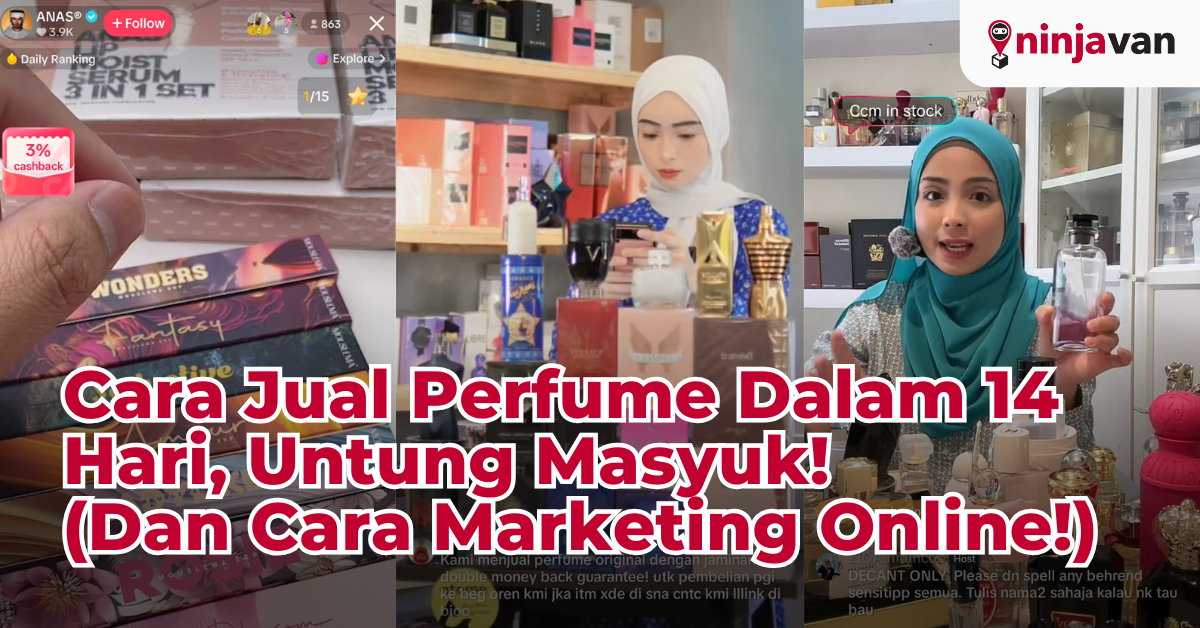Content Marketing is the ‘new’ buzzword that has been going around the digital marketing world these days. But let’s break it down: What exactly is it, and more importantly, is it really necessary? Well, with some pretty convincing statistics showing that businesses that go all-in on content marketing experience six times higher conversion rates compared to those that don’t, the urgency of understanding this strategy is undeniable.
It’s no wonder why brands scramble to align their content with the latest trends whenever a new viral social platform emerges. But as these trends continue to evolve, it can be quite a challenge to keep up. Nevertheless, understanding and mastering content marketing could be your ticket to not just surviving but thriving in the digital marketplace.
So we’re here to shed light on the essence of content marketing and, of course, provide some practical insights on how you can ace content marketing for your online selling ventures.
‘Normal’ Marketing vs. Content Marketing – What’s the Difference?
In the past, the term “marketing” used to be a catch-all phrase that encompassed a broad spectrum of activities aimed at promoting products or services. However, as the digital landscape evolved and consumer behaviour became more complex, marketers realised the need for specialisation. Thus, marketing has since been divided into various specialised divisions, each with its unique objectives and methods.
Today, when we speak of “marketing”, it serves as a sweeping umbrella encompassing all these specialised types, from traditional print advertisements and television commercials to content-driven strategies that define content marketing.
Types of Marketing
Before diving deeper into content marketing, let’s briefly explore the various types of marketing that exist today:
- Traditional Marketing: This includes conventional advertising methods such as print ads, TV commercials, and billboards.
- Digital Marketing: This is a broad category encompassing all marketing efforts that use digital channels like websites, email, social media, and search engines.
- Social Media Marketing: Focused on utilising social platforms like Facebook, Instagram, Twitter, and LinkedIn to reach and engage with audiences.
- Search Engine Marketing (SEM): Involves paid advertising on search engines like Google or Bing, primarily through pay-per-click (PPC) campaigns.
- Email Marketing: The strategic use of email to communicate with potential and existing customers.
- Content Marketing: Content marketing centres around creating valuable content to attract, engage, and retain an audience.
What is Content Marketing?
Content marketing is a multifaceted strategy that revolves around the creation and distribution of valuable, informative, and engaging content. Unlike traditional advertising, which directly promotes a product or service, content marketing aims to provide something of value to the audience, establishing trust and authority in the process. At its core, content marketing is intertwined with content creation. Here are two key aspects of content marketing:
- Paid Content Marketing: Yes, there is a paid side to content marketing. This includes sponsored content, native advertising, and paid promotions on social media platforms such as Facebook Ads. While you invest resources to get your content in front of a larger audience, the content itself still needs to provide value to the viewers.
- Organic Content Marketing: This is the heart and soul of content marketing and the crux of content creation. Organic content is the material you create without paying for direct promotion. It includes blog posts, infographics, podcasts, videos, and social media posts that educate, entertain, or inform your target audience. Organic content aims to attract potential customers and build a loyal following through engagement and quality.
Content Marketing: How to Do It Right
Now that we understand what content marketing entails, let’s explore how online sellers can use it effectively.
Getting Started
Content marketing can be both exciting and daunting, especially for beginners. To ease the transition into this dynamic field, there are several low-hanging fruits in content creation that are not only accessible but also relatively easy to create, making them the perfect starting point for novices.
These practical ideas provide a foundation upon which you can build your content marketing strategy, gradually expanding your repertoire as you gain confidence and experience.
- Product Descriptions: Crafting compelling and informative product descriptions on your listing pages is a low-hanging fruit. These descriptions should be detailed, highlighting the unique features and benefits of your products. This is your opportunity to make a strong first impression and drive sales.
- Buyer’s Guides: Writing informative blog articles, such as a comprehensive buyer’s guide for a product category you offer, is a fantastic entry point into content marketing. For example, if you sell camping gear, you could craft a guide titled “The Complete Camping Gear Buyer’s Guide” with recommendations and tips. Remember to conduct keyword research to ensure your content aligns with what your target audience is searching for.
- Tutorials and How-To Guides: Offering how-to guides specific to your products or industry is an excellent way to offer value to your audience. These guides should provide step-by-step instructions to solve common problems or address frequently asked questions.
- Infographics: Visual content like infographics can be a powerful tool for conveying information in a visually appealing and digestible manner. Tools like Canva make it simple to create eye-catching infographics.
- Social Media Posts: Leveraging the right social media platform provides an excellent opportunity to engage with your audience. Posting updates, sharing tips, and creating visually appealing graphics or memes are relatively straightforward ways to initiate conversations and build your online presence. Utilising a content calendar can also help maintain consistency in your content creation efforts.
The Next Step – Stretching Goals
For online sellers looking to take their content marketing to the next level, creating videos is a highly effective strategy. Videos are incredibly engaging and versatile, catering to various types of audiences. In fact, short-form video content reigns supreme in 2023’s marketing landscape, with an unmatched return on investment (ROI) potential. This trend is not surprising, given that 73% of consumers express a strong inclination toward short-form video content when seeking information about products or services.
As you venture into video marketing, here are some strategies to consider:
- Dynamic Storytelling: Craft narratives that immerse your audience in your brand’s world. Engage viewers emotionally and make your content memorable by telling stories that resonate with your brand and its values. This humanises your brand and fosters a stronger connection with customers.
- Live Streaming: Engage with your audience in real-time through live streaming or live selling on platforms like Facebook Live, Instagram Live, or YouTube Live. This creates a sense of immediacy and interactivity.
- Mobile Optimisation: Given the rise in mobile viewership, ensure your videos are mobile-friendly. Use subtitles and ensure that your content is easily digestible on smaller screens.
- Influencer Collaborations: Partner with influencers who align with your brand’s values and target audience. Their endorsement can significantly expand your reach.
Elevating Your Strategy – Advanced Tips
Once you’ve mastered the fundamentals of content marketing, it’s time to elevate your approach. These advanced strategies will enable you to connect with your audience on a deeper level, building trust and fostering brand loyalty.
Beyond what’s been covered, try these:
- Email Newsletters: Sending out newsletters that provide valuable insights, product updates, and special offers to your subscribers enables you to communicate directly with your subscribers. Building and nurturing an email list is an essential step in growing your customer base. Tools like Mailchimp can help automate this process.
- Customer Testimonials: Encouraging satisfied customers to share their experiences through written or short video testimonials can be an excellent way to build trust and credibility. Showcasing these testimonials serves to reassure potential customers of the quality and reliability of your products or services.
- Webinars and Workshops: Hosting webinars and workshops allows you to position yourself as an authority in your industry. It’s an effective way to educate your audience while showcasing your expertise. Interact with participants in real-time, fostering engagement and a sense of community.
The answer is crystal clear: Content marketing is no longer just an option for online sellers—it’s a necessity in today’s fiercely competitive digital landscape. While traditional marketing methods still have their place, content marketing stands out as a strategy that can build trust, authority, and long-term customer relationships. Whether you’re just starting or looking to expand your content marketing efforts, the key is to provide value to your audience consistently. From blog posts to captivating videos, your content can be the driving force behind your online selling success. So, don’t think of content marketing as just another marketing tactic; think of it as your bridge to a more engaged and loyal customer base.







